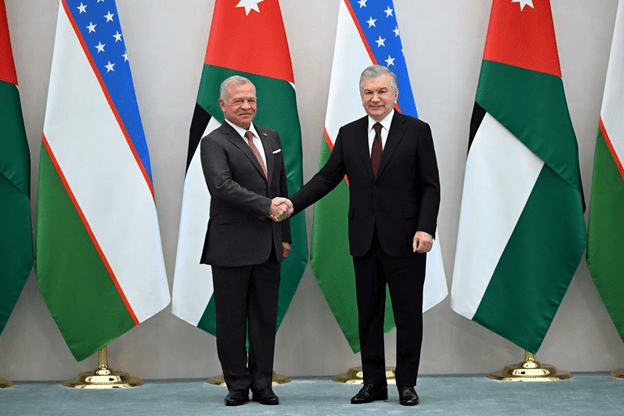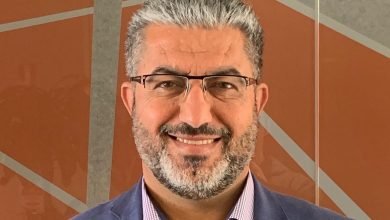
By : Adkhamjon Janobiddinov
Jordan Daily – On August 25-26, The King of the Hashemite Kingdom of Jordan Abdullah ibn al-Hussein paid a state visit to the Republic of Uzbekistan and started the new chapter of Jordan – Uzbekistan relations.
Jordan and Uzbekistan established diplomatic relations in 1993. Both countries share historical ties and are connected with Islamic and cultural values.
Over the last three decades, Jordan and Uzbekistan have expanded their cooperation in trade, culture and humanitarian areas. However, there were still many untapped opportunities, the state visit of the King of Jordan played a great role in using these opportunities and reached a new milestone in bilateral relations.
During the first day of the King’s visit to Uzbekistan, King Abdullah got acquainted with historical monuments in the city of Samarkand, accompanied by President Mirziyoyev. The first complex the leaders visited is Shah-i-Zinda complex, where Prophet Muhammad’s (pbuh) cousin and companion Qusam ibn Abbas was buried. The King of Jordan paid tribute to the memory of Qusam ibn Abbas and suras from the Koran were recited. Then, the heads of states visited the Amir Timur mausoleum, where the national hero of Uzbekistan Amir Timur was buried.
During the visit, the Jordanian delegation was told about the state-building policy of Amir Timur, his military talent, and diplomatic relations with various countries. The leaders also visited the Registan square, a cultural symbol of Samarkand.
At the end of the first day, King Abdullah and President Mirziyoyev visited the historical and ethnographic park “Eternal City” in the international tourist center of the city of Samarkand, where the King learned about the cultural heritage of Uzbek people, crafts and applied arts.
On the second day of the state visit, the official welcoming ceremony was held in front of the Congress Centre in Samarkand, A guard of honour was lined up and the military orchestra played the national anthems of the two countries. After that, the heads of states got acquainted with the exhibition of export-oriented products manufactured in Uzbekistan. Some of such products include medicines, medical equipment, mineral fertilizers, textiles, knitwear and jewelry, folk crafts, IT solutions and others.
During the negotiations, heads of two states agreed to further expand cooperation on trade, investment, cultural and humanitarian fields. Furthermore, mutual support for initiatives within the framework of the United Nations, the Organization of Islamic Cooperation and other international structures were also noted.
In total, 15 bilateral documents were signed, including agreement on cooperation in tourism; agreement on cooperation in higher education and scientific research; agreement on establishment of an Intergovernmental Joint Commission for Bilateral Cooperation between the Governments of Jordan and Uzbekistan; visa exemption, agreement concerning the reciprocal promotion and protection of investments; protocol between the two countries on advance online exchange of information on movements of goods and transport, cooperation in religious affairs, agreement on cooperation in agriculture; extradition agreement.
After agreements were signed. His Majesty the King Abdullah II awarded President of Uzbekistan Shavkat Mirziyoyev with the Order of Jordan “An-Nahda” and invited the President to visit Jordan.
At the end of the state visit, the President of Uzbekistan and the King of Jordan planted a tree, which became a symbol of the beginning of a new stage in Uzbek-Jordanian relations and the commitment of the leaders to strengthening friendship between the peoples of the two countries.
Overall, the state visit of the King of Jordan started a new chapter in Jordan – Uzbekistan relations, creating an opportunity for further development in trade, tourism, investment and many other fields between the two countries. Furthermore, this state visit also demonstrates Uzbekistan’s potential as a partner for other Arab states in the region.
Adkhamjon Janobiddinov is an independent researcher and journalist from Uzbekistan, currently pursuing his studies in Economics in the United States. He contributed this article for Jordan Daily.

